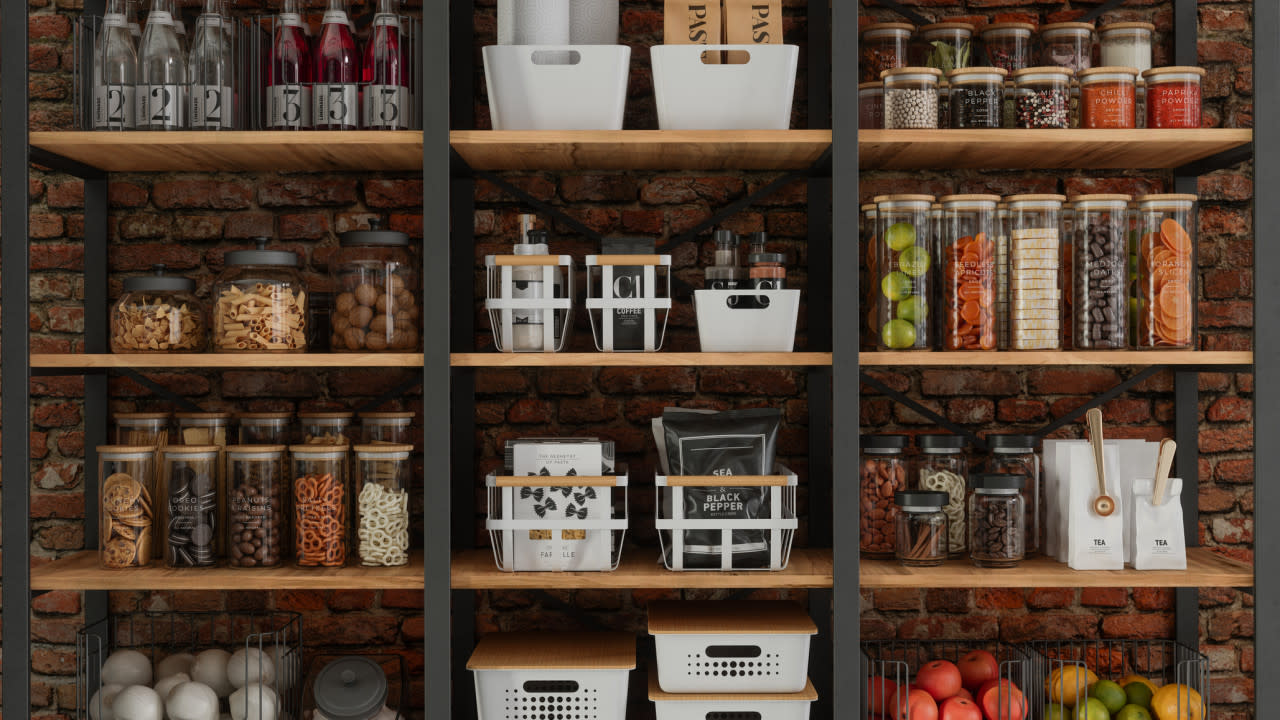According to the American Heart Association, nearly half of all adults in the U.S. have high blood pressure (≥130/80 mm Hg), which is the top preventable risk factor for cardiovascular disease, including heart attack and stroke, as well as kidney disease, cognitive decline and dementia.
If the last time you visited the doctor, your blood pressure was high, your doctor may have recommended lifestyle modifications like improved diet and more exercise. For the former, you might be on the hunt for snacks that can help lower blood pressure. Luckily, there are several, including one you probably have in your pantry.
🩺SIGN UP for tips to stay healthy & fit with the top moves, clean eats, health trends & more delivered right to your inbox twice a week💊
The Daily Snack Can Help Lower Blood Pressure, According to Cardiologists
Enter: unsalted nuts. Although salted nuts might taste better, unsalted nuts actually are the ones you’ll want to reach for next time you’re looking for a snack.
“A small amount of nuts such as walnuts, almonds and pistachios daily can potentially help to lower blood pressure,” saysDr. Oen-Hsiao, MD, cardiologist and associate professor of cardiovascular medicine at Yale University. “These nuts contain L-arginine, which is an amino acid that helps to produce nitric oxide which has a vasodilatory effect on the arteries that can potentially lower blood pressure.”
While unsalted nuts can help lower blood pressure, you’ll want to keep an eye on your portion.
“Nuts are high in fat (especially pistachios), so you don’t want to eat too many,” Dr. Oen-Hsiao explains. “If you choose to eat nuts as a snack, make sure you portion them out, so you’re not eating too many in one sitting.”
Related: I’m a Cardiologist, and This Is the One Thing I Add to Almost Every Meal
Other Snacks That Can Help Lower Blood Pressure
Unsalted nuts aren’t the only snack that can help lower blood pressure. In fact, there are others that you can try to eat throughout the day.
“Fresh fruits and vegetables—especially berries, bananas and leafy greens—are excellent,” says Dr. Jayne Morgan, MD, cardiologist and vice president of medical affairs for Hello Heart. “Additionally, low-fat yogurt or hummus with veggies are also great snack options as they’re rich in fiber, potassium, and antioxidants, all of which support healthy blood pressure.”
3 Other Common Habits That Can Help Lower Blood Pressure
While eating unsalted nuts can help lower blood pressure, there are other lifestyle modifications that you can make to improve your health.
1. Regular exercise
Dr. Mohanakrishnan Sathyamoorthy, MD, a board-certified cardiologist and chair of internal medicine at Burnett School of Medicine at TCU, recommends adding in daily exercise to your regimen to help with blood pressure.
“Exercise daily to the level advised by your physician. Be intentional and committed to daily exercise,” he says.
The American Heart Association recommends aiming for 150 minutes (about 2 and a half hours) of moderate-intensity exercise or 75 minutes of vigorous aerobic activity per week. Again, you’ll want to consult with your doctor before starting a new exercise regimen.
“Ideally, you exercise for 30 minutes a day of non-stop cardio (walking, running, jogging, swimming, jumping jacks) every day,” Dr. Oen-Hsiao adds.
Related: Cardiologists Swear By This 2-Minute Exercise for Lowering Blood Pressure
2. Cut down on salt
Many modern diets consist of lots of salt, whether that’s from processed food or the oversalted food at restaurants. And unfortunately, too much salt can have a negative impact on blood pressure.
“Salt drives up blood pressure, so reducing the intake of salt can help to keep the blood pressure down,” Dr. Oen-Hsiao says.
The American Heart Association recommends no more than 2,300 mg of sodium a day, with an ideal limit of less than 1,500 mg per day for most adults, especially for those with high blood pressure.
Related: Cardiologists Swear by This Nightly Habit To Reduce Hypertension
3. Check your blood pressure regularly
If you have high blood pressure or think you might be on the way, then you’ll want to be proactive and start monitoring early on. “Consider getting a home blood pressure monitor,” Dr. Morgan explains. “Research has shown that those who engage regularly with home blood pressure monitors have not only better blood pressure control, but lower risks for heart disease and strokes.”
To get an even clearer picture of your overall heart health, she recommends Bayer Aspirin’s 2-minute Heart Health Risk Assessment at SeeYourRisks.com, as it’s an easy way to understand your personal risk factors and start meaningful conversations with your doctor.
When To See a Doctor
According to Dr. Oen-Hsiao, you’ll want to seek out professional medical care if you have any symptoms such as shortness of breath, headache, dizziness, or chest discomfort. Also, if your blood pressure is consistently greater than 140/85, contact your doctor ASAP.
Up Next:
Sources:
-
Dr. Oen-Hsiao, cardiologist and associate professor of cardiovascular medicine at Yale University.
-
Dr. Jayne Morgan, MD, cardiologist and vice president of medical affairs for Hello Heart.
-
Dr. Mohanakrishnan Sathyamoorthy, MD, a board-certified cardiologist and chair of internal medicine at Burnett School of Medicine at TCU
-
American Heart Association: American Heart Association Recommendations for Physical Activity in Adults and Kids
-
American Heart Association: Why Should I Limit Sodium?
This story was originally reported by Parade on Sep 27, 2025, where it first appeared in the Health & Wellness section. Add Parade as a Preferred Source by clicking here.
Yahoo News – Latest News & Headlines
Read the full article .


